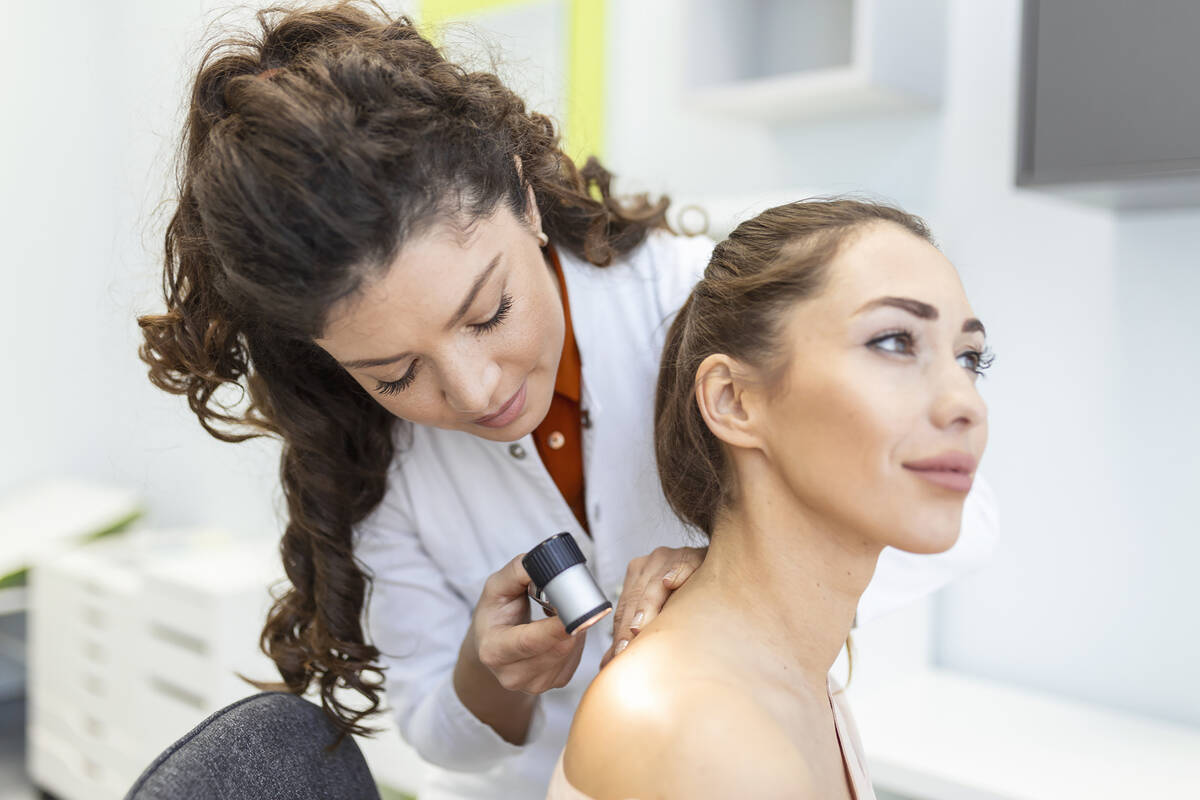What is Merkel cell carcinoma? How can you protect yourself?
Question: I recently heard about a type of skin cancer called Merkel cell carcinoma. I’m not familiar with this condition. Can you explain what it is? Do I need to do anything different to protect myself?
Answer: Skin cancer is the most common cancer in the United States. The American Academy of Dermatology estimates that 1 in every 5 people will develop skin cancer annually. In general, exposure to UV light from the sun or tanning equipment increases the risk of developing skin cancer. Anyone is at risk of developing skin cancer. People with lighter or fair skin color are at increased risk of sunburn and skin cancer, but anyone can experience sun damage and develop skin cancer.
There are two main types of skin cancer: melanoma and nonmelanoma, of which basal cell carcinoma and squamous cell carcinoma are the most common. Basal cell and squamous cell carcinoma are estimated to affect more than 5 million people in the U.S. annually. Melanoma is less common but can be more dangerous as it is more likely to spread if left untreated.
Merkel cell carcinoma falls within the category of nonmelanoma skin cancer and is a rare neuroendocrine carcinoma of the skin, affecting about 2,500 people in the U.S. annually. Merkel cells are found at the base of the top layer of skin.
This type of cancer is more aggressive than melanoma as it tends to grow rapidly and spread quickly to other parts of the body. Merkel cell tumors often appear as flesh-colored or pink lumps or bumps on the skin.
Although anyone can be at risk, Merkel cell carcinoma often develops in older people. Like other types of skin cancers, long-term sun exposure is known to be a major risk factor for Merkel cell carcinoma.
Immunosuppressed people — such as those who have had organ transplants — or individuals who have certain types of blood cancers are at greater risk for Merkel cell carcinoma.
Depending on the cancer stage at diagnosis, treatment for Merkel cell carcinoma will vary. Given the propensity for this cancer to spread early, most patients will undergo a procedure to remove the cancer. Many also will have a sentinel lymph node biopsy performed. Depending on the biopsy results, additional surgery, radiation therapy or other treatment, including immunotherapy or chemotherapy, may be needed.
Just like any other types of skin cancer, the best way to protect yourself is to practice good sun hygiene. This includes wearing sunscreen and limiting the body’s exposure to UV radiation.
Avoid being in the sun during peak hours, which is usually 10 a.m. to 2 p.m. If you will be outdoors, wear sun-protective clothing, including long sleeves, a wide-brimmed hat and sunglasses.
Be mindful about using and reapplying sunscreen, even on cloudy days. When choosing a sunscreen, look for a broad-spectrum product with a sun protection factor of 30 or above. The higher the SPF, the better protection. You also want to find a sunscreen that is labeled as “broad-spectrum” or “full-spectrum” sunscreen.
The key to getting the total amount of SPF protection from sunscreen is applying it generously and frequently. Most people need to apply more. For example, most adults need about 1 ounce of sunscreen to cover their body effectively, or about enough to fill a shot glass. Reapply sunscreen at least every two hours, or more often if you’ve been sweating or swimming.
It is important to note rapidly growing or changing lesions. If you notice something new or changes in size, color or shape, consult with a dermatologist. The earlier a skin cancer is found the better chance of successful treatment.
Dr. Catherine Degesys is a dermatologist with the Mayo Clinic in Jacksonville, Florida.


















